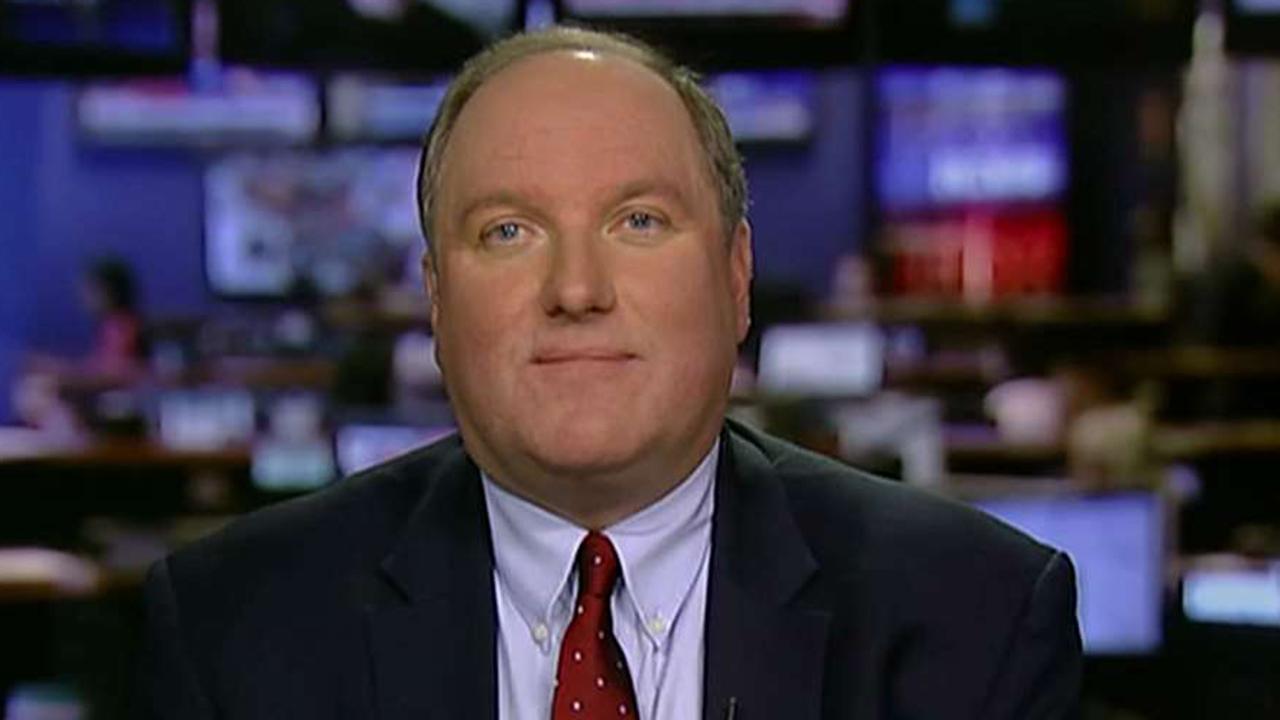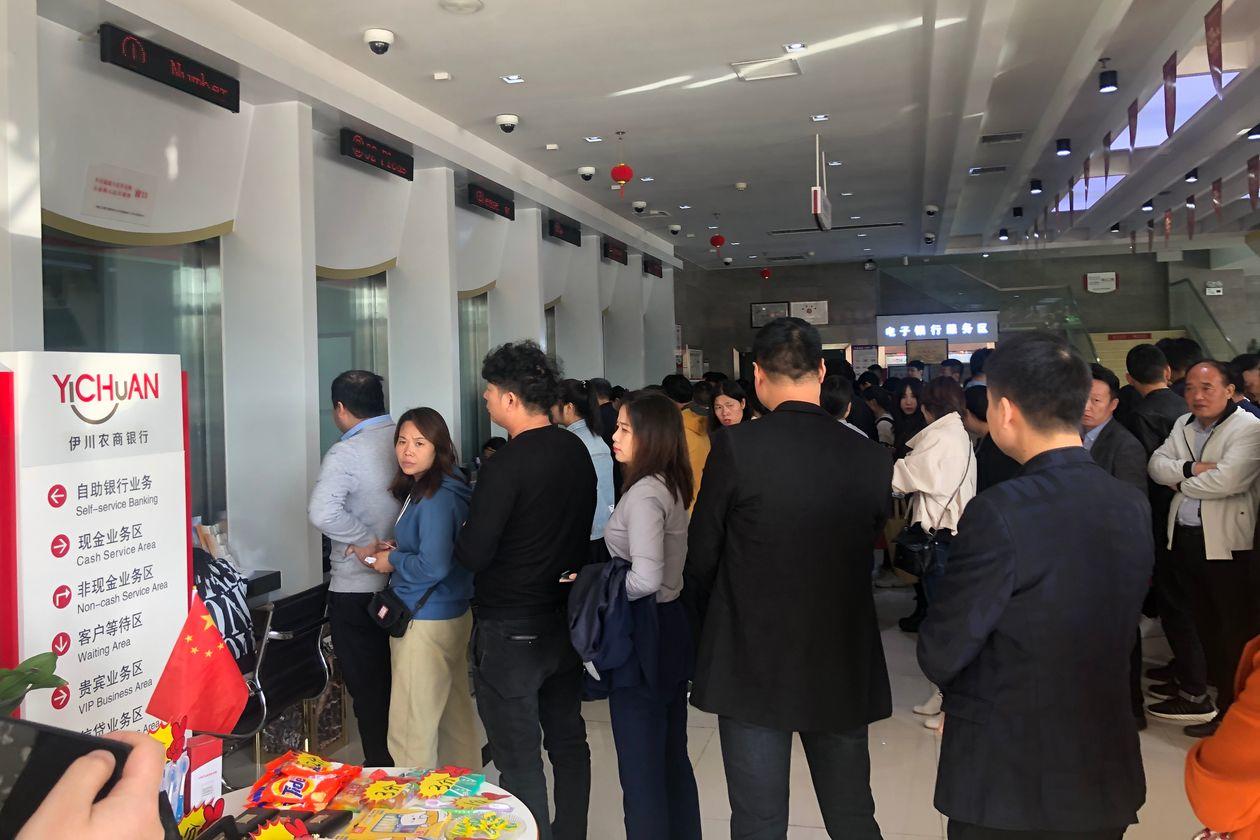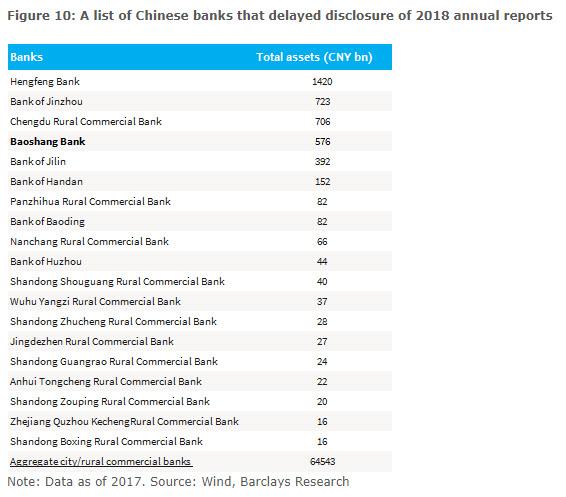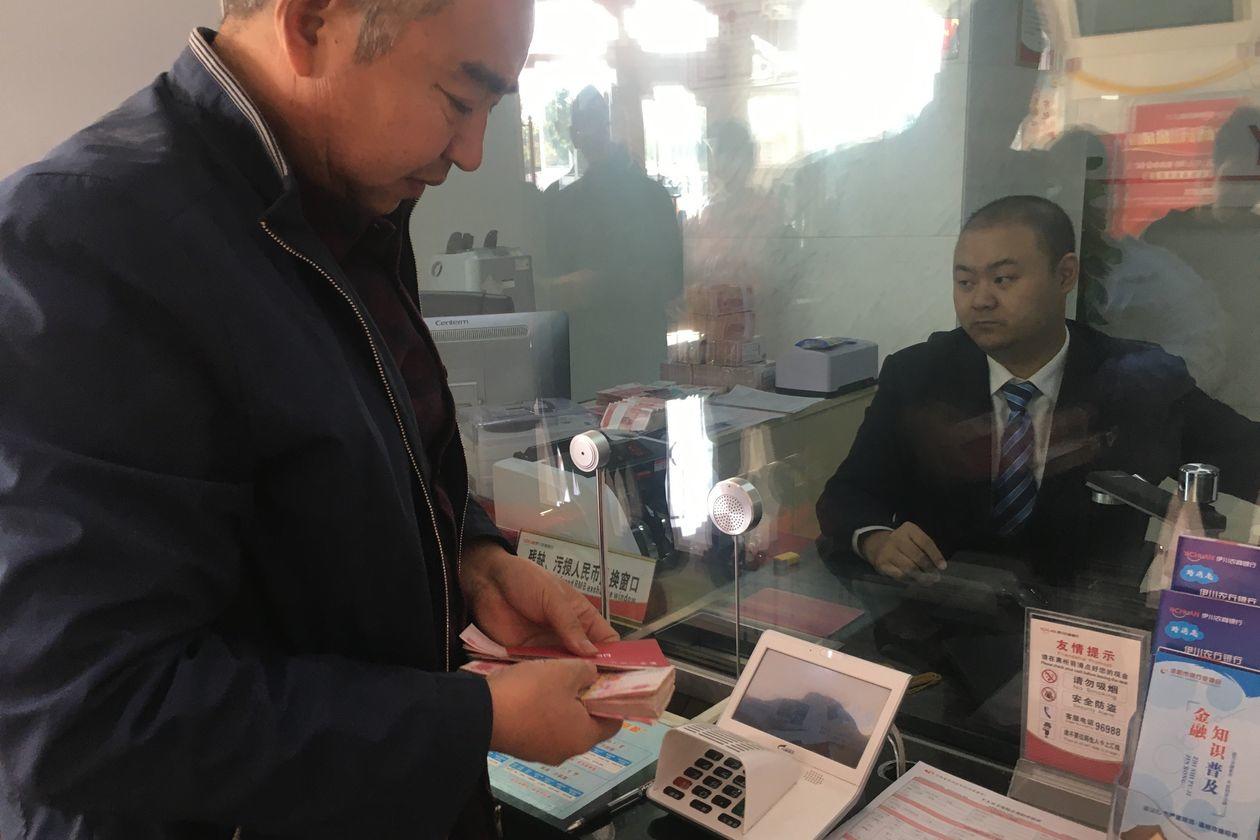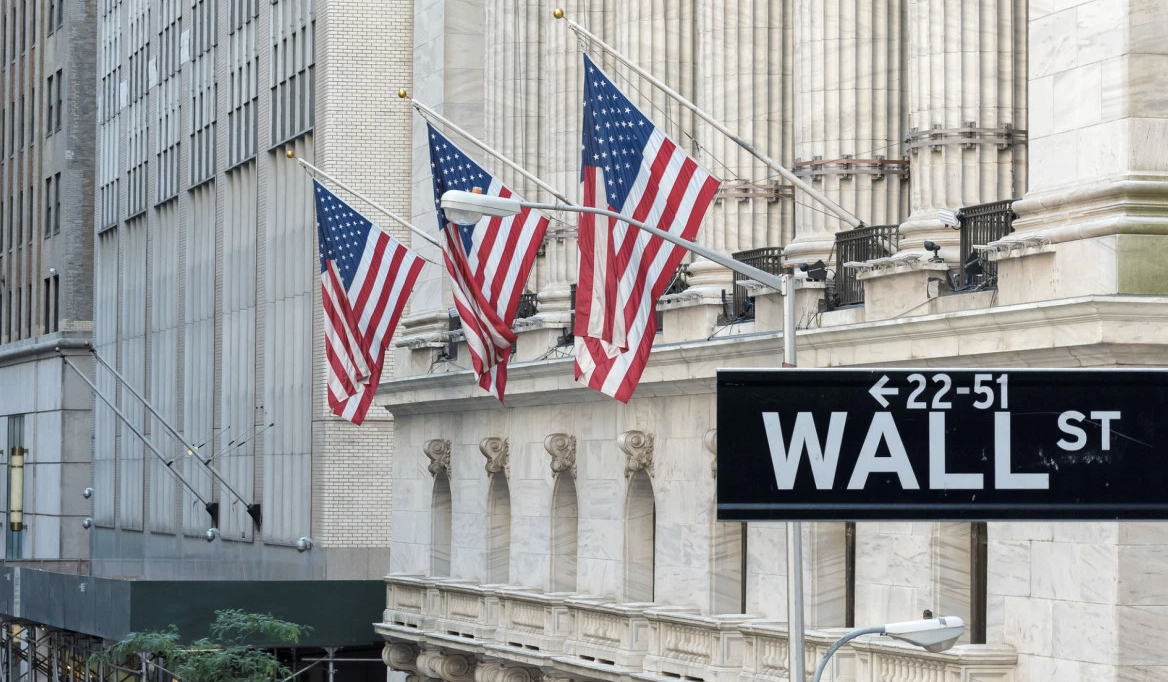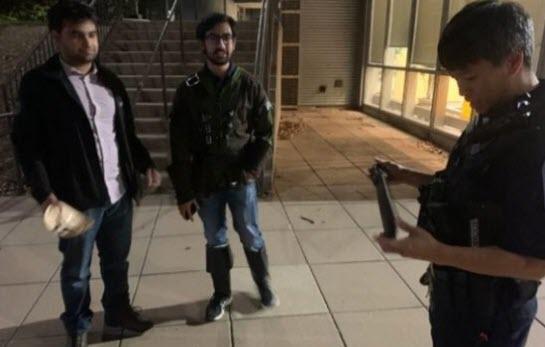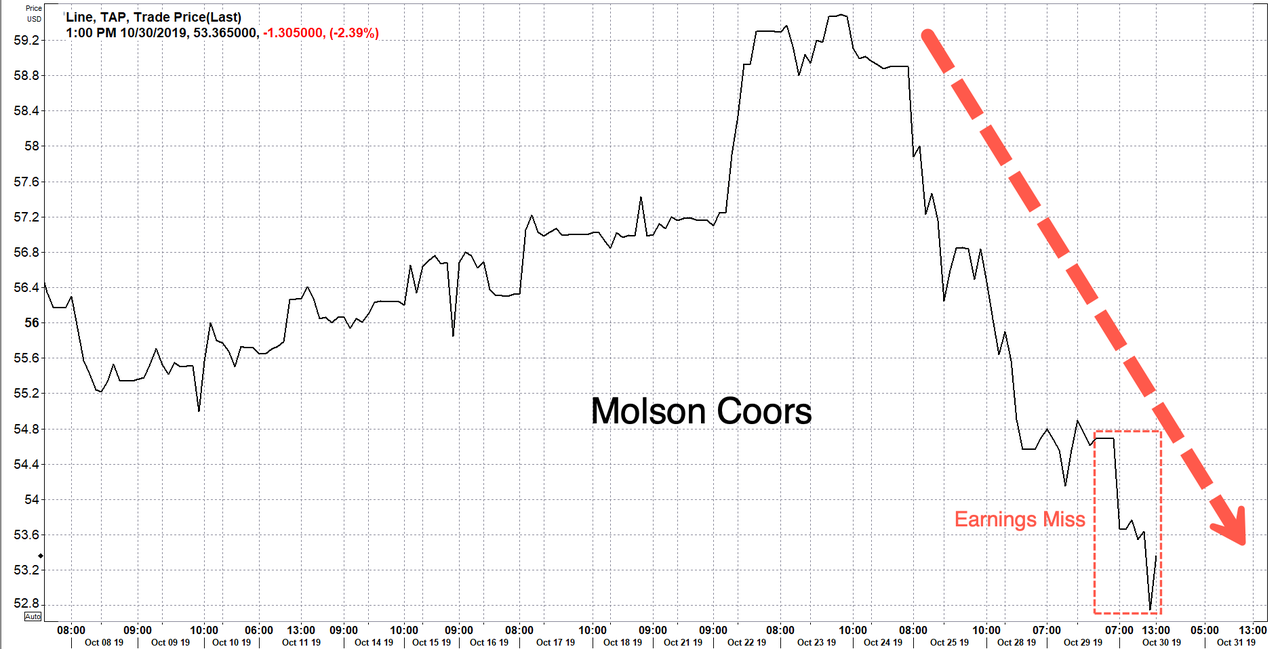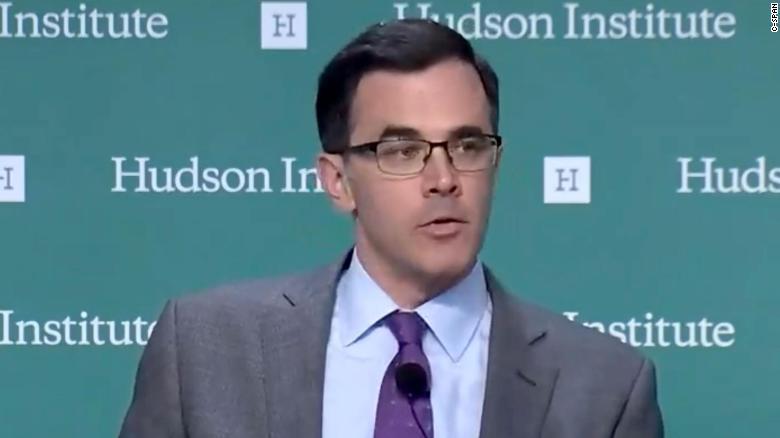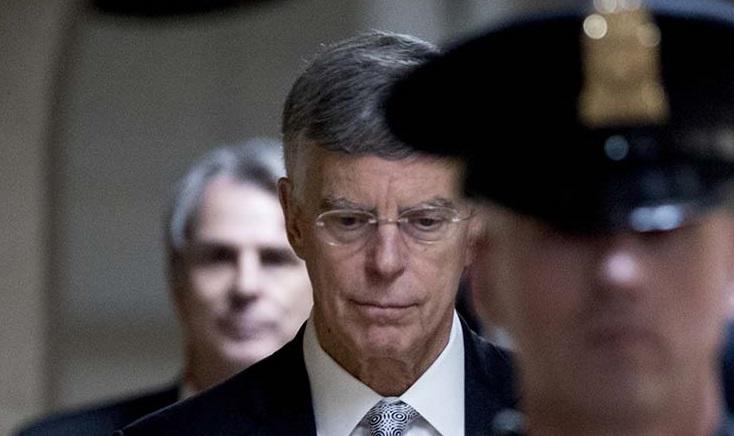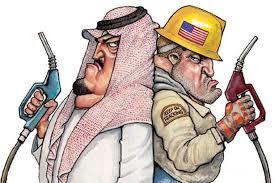John Solomon Debunks MSM Lies About Ukraine, Biden And Election Interference
Authored by John Solomon via JohnSolomonReports.com
(emphasis ours)
There is a long way to go in the impeachment process, and there are some very important issues still to be resolved. But as the process marches on, a growing number of myths and falsehoods are being spread by partisans and their allies in the news media.
The early pattern of misinformation about Ukraine, Joe Biden and election interference mirrors closely the tactics used in late 2016 and early 2017 to build the false and now-debunked narrative that Donald Trump and Vladimir Putin colluded to hijack the 2016 election.
Facts do matter. And they prove to be stubborn evidence, even in the midst of a political firestorm. So here are the facts (complete with links to the original materials) debunking some of the bigger fables in the Ukraine scandal.
Myth: There is no evidence the Democratic National Committee sought Ukraine’s assistance during the 2016 election.
The Facts: The Ukrainian embassy in Washington confirmed to me this past April that a Democratic National Committee contractor named Alexandra Chalupa did, in fact, solicit dirt on Donald Trump and Paul Manafort during the spring of 2016 in hopes of spurring a pre-election congressional hearing into the Trump campaign’s ties to Russia. The embassy also stated Chalupa tried to get Ukraine’s president at the time, Petro Poroshenko, to do an interview on Manafort with an American investigative reporter working on the issue. The embassy said it turned down both requests.
You can read the Ukraine embassy’s statement here. The statement essentially confirmed a January 2017 investigative article in Politico that first raised concerns about Chalupa’s contacts with the embassy.
Chalupa’s activities involving Ukraine were further detailed in a May 2016 email published by WikiLeaks in which she reported to DNC officials on her efforts to dig up dirt on Manafort and Trump. You can read that email here.
Myth: There is no evidence that Ukrainian government officials tried to influence the American presidential election in 2016.
The Facts: There are two documented episodes involving Ukrainian government officials’ efforts to influence the 2016 American presidential election. The first occurred in Ukraine, where a court last December ruled that a Parliamentary member and a senior Ukrainian law enforcement official improperly tried to influence the U.S. election by releasing financial records in spring and summer 2016 from an investigation into Trump campaign chairman Paul Manafort’s lobbying activities. The publicity from the release of the so-called Black Ledger documents forced Manafort to resign. You can read that ruling here. While that court ruling since has been set aside on a jurisdiction technicality, the facts of the released information are not in dispute.
The second episode occurred on U.S. soil back in August 2016 when Ukraine’s then-ambassador to Washington, Valeriy Chaly, took the extraordinary step of writing an OpEd in The Hill criticizing GOP nominee Donald Trump and his views on Russia just three months before Election Day. You can read that OpEd here.
Chaly later told me through his spokeswoman that he wasn’t writing the OpEd for political purposes but rather to address his country’s geopolitical interests. But his article, nonetheless, was viewed by many in career diplomatic circles as running contrary to the Geneva Convention’s rules barring diplomats from becoming embroiled in the host country’s political affairs. And it clearly adds to the public perception that Ukraine’s government at the time preferred Hillary Clinton over Trump in the 2016 election.
Myth: The allegation that Joe Biden tried to fire the Ukrainian prosecutor investigating his son Hunter Biden’s Ukrainian gas firm employer has been debunked, and there is no evidence the ex-vice president did anything improper.
The Facts: Joe Biden is captured on videotape bragging about his effort to strong-arm Ukraine’s president into firing Prosecutor General Viktor Shokin. Biden told a foreign policy group in early 2018 that he used the threat of withholding $1 billion in U.S. aid to Kiev to successfully force Shokin’s firing. You can watch Biden’s statement here.
It also is not in dispute that at the time he forced the firing, the vice president’s office knew Shokin was investigating Burisma Holdings, the company where Hunter Biden worked as a board member and consultant. Team Biden was alerted to the investigation in a December 2015 New York Times article. You can read that article here.
The unresolved question is what motivated Joe Biden to seek Shokin’s ouster. Biden says he took the action solely because the U.S. and Western allies believed Shokin was ineffective in fighting corruption. Shokin told me, ABC News and others that he was fired because Joe Biden was unhappy that the Burisma investigation was not shut down. He made similar statements in an affidavit prepared to be filed in an European court. You can read that affidavit here.
In the end, though, whether Joe Biden had good or bad intentions in getting Shokin fired is somewhat irrelevant to the question of the vice president’s ethical obligation.
U.S. ethics rules require all government officials to avoid even the appearance of a conflict of interest in taking official actions. Ethics experts I talked with say Biden should have recused himself from the Shokin matter once he learned about the Burisma investigation to avoid the appearance issue.
And a senior U.S. diplomat was quoted in testimony reported by The Washington Post earlier this month that he tried to raise warnings with Biden’s VP office in 2015 that Hunter Biden’s role at the Ukrainian firm raised the potential issue of conflicts of interest.
Myth: Ukraine’s investigation into Burisma Holdings was no longer active when Joe Biden forced Shokin’s firing in March 2016.
The Facts: This is one of the most egregiously false statements spread by the media. Ukraine’s official case file for Burisma Holdings, provided to me by prosecutors, shows there were two active investigations into the gas firm and its founder Mykola Zlochevsky in early 2016, one involving corruption allegations and the other involving unpaid taxes.
In fact, Shokin told me in an interview he was making plans to interview Burisma board members, including Hunter Biden, at the time he was fired. And it was publicly reported that in February 2016, a month before Shokin was fired, that Ukrainian prosecutors raided one of Zlochevsky’s homes and seized expensive items like a luxury car as part of the corruption probe. You can read a contemporaneous news report about the seizure here.
Burisma’s own legal activities also clearly show the investigations were active at the time Shokin was fired. Internal emails I obtained from the American legal team representing Burisma show that on March 29, 2016 – the very day Shokin was fired – Burisma lawyer John Buretta was seeking a meeting with Shokin’s temporary replacement in hopes of settling the open cases.
In May 2016 when new Prosecutor General Yuriy Lutsenko was appointed, Buretta then sent a letter to the new prosecutor seeking to resolve the investigations of Burisma and Zlochevsky. You can read that letter here.
Buretta eventually gave a February 2017 interview to the Kiev Post in which he divulged that the corruption probe was resolved in fall 2016 and the tax case by early January 2017. You can read Buretta’s interview here.
In another words, the Burisma investigations were active at the time Vice President Biden forced Shokin’s firing, and any suggestion to the contrary is pure misinformation.
Myth: There is no evidence Vice President Joe Biden did anything to encourage Burisma’s hiring of his son Hunter.
The Facts: This is another area where the public facts cry out for more investigation and raise a question in some minds about another appearance of a conflict of interest.
Hunter Biden’s business partner, Devon Archer, was appointed to Burisma’s board in mid-April 2014 and the firm Rosemont Seneca Bohai — jointly owned by Hunter Biden and Devon Archer — received its first payments from the Ukrainian gas company on April 15, 2014, according to the company’s ledgers. That very same day as the first Burisma payment, Devon Archer met with Joe Biden at the White House, according to White House visitor logs. It is not known what the two discussed.
A week later, Joe Biden traveled to Ukraine and met with then-Ukrainian Prime Minister Arseniy Yatsenyuk. During that meeting, the American vice president urged Ukraine to ramp up energy production to free itself from its Russian natural gas dependence. Biden even boasted that “an American team is currently in the region working with Ukraine and its neighbors to increase Ukraine’s short-term energy supply.” Yatsenyuk welcomed the help from American “investors” in modernizing natural gas supply lines in Ukraine. You can read the Biden-Yatsenyuk transcript here.
Less than three weeks later, Burisma added Hunter Biden to its board to join Archer. To some, the sequence of events creates the appearance that Joe Biden’s pressure to increase Ukrainian gas supply and to urge Kiev to rely on Americans might have led Burisma to hire his son. More investigation needs to be done to determine exactly what happened. And until that occurs, the appearance issue will likely linger over this episode.
Myth: Hunter Biden’s firm only received $50,000 a month for his work as a board member and consultant for Burisma Holdings.
The Facts: This figure frequently cited by Biden defenders and the media significantly understates what Burisma was paying Hunter Biden’s Rosemont Seneca Bohai firm for his and Devon Archer’s services. Bank records obtained by the FBI in an unrelated case show that between May 2014 and the end of 2015, Hunter Biden’s and Archer’s firm received monthly consulting payments totaling $166,666, or three times the amount cited by the media. In some months, there was even more money than that paid. You can review those bank records here.
The monthly payments figures are confirmed by the accounting ledger that Burisma turned over to Ukrainian prosecutors. That ledger, which you can read here, also shows that in spring and summer of 2014 Burisma paid more than $283,000 to the American law firm of Boies Schiller, where Hunter Biden also worked as an attorney.
Myth: President Trump was trying to force Ukraine to reopen a probe into Burisma Holdings and its founder Mykola Zlochevsky when he talked to Ukraine’s new president, Volodymyr Zelensky, in July of this year.
The Facts: Trump could not have forced the Ukrainians into opening a new Burisma investigation in July because the Ukrainian Prosecutor General’s office had already done so on March 28, 2019, or three months before the call.
The prosecutors filed this notice of suspicion in Ukraine announcing the re-opening of the investigation. The revival of the case was even widely reported in the Ukrainian press, something U.S. intelligence and diplomats who are now testifying to Congress behind closed doors should have known. Here’s an example of one such Ukrainian media report at the time.
Myth: Former Ukrainian Prosecutor General Yuriy Lutsenko retracted or recanted his claim that U.S. Ambassador to Ukraine Marie Yovanovitch in 2016 identified people and entities she did not what to see prosecuted in Ukraine.
The Facts: In a March interview with me at Hill.TV captured on videotape, Lutsenko stated that during his first meeting with Yovanovitch in summer 2016, the American diplomat rattled off a list of names of Ukrainian individuals and entities she did not want to see investigated or prosecuted. Lutsenko called it a “do not prosecute” list. You can watch that video here. The State Department disputed his characterization as a fabrication, which Hill.TV reported in its original report.
A few weeks later, a Ukrainian news outlet claimed it interviewed Lutsenko and he backed off his assertion about the list. Several American outlets have since picked up that same language.
There is just one problem. I re-interviewed Lutsenko after the Ukrainian report suggesting he recanted. He adamantly denied recanting, retracting or changing his story, and said the Ukrainian newspaper simply misunderstood that the list of names were conveyed orally during the meeting and not in writing, just like he said in the original Hill.TV interview.
Here is Lutsenko’s full explanation to me back last spring: “At no time since our interview have I ever retracted the statement I made about the U.S. ambassador providing me a list of names of people and organizations she did not want my office to prosecute. Shortly after my televised interview with your news organization I was asked by a Ukraine reporter if I had a copy of the letter that Ambassador Yovanovitch provided me with the names of those she did not want prosecuted. The reporter misunderstood how the names were transmitted to me. I explained to the reporter that the Ambassador did not hand me a written list but rather provided the list of names orally over the course of a meeting.” Lutsenko reaffirmed he stood by his statements again in September.
It is important to note Lutsenko’s story was also backed up by State Department officials and contemporaneous memos before his interview was ever aired. For instance, a senior U.S. official I interviewed for the Lutsenko story reviewed the list of names that Lutsenko recalled being on the so-called do-not-prosecute list.
That official stated during the interview: “I can confirm to you that at least some of those names are names that U.S. embassy Kiev raised with the Prosecutor General’s office because we were concerned about retribution and unfair treatment of Ukrainians viewed as favorable to the United States.”
Separately, both U.S. and Ukrainian official confirmed to me a letter written by then-U.S. embassy official George Kent in April 2016 in which U.S. officials pointedly (and in writing) demanded that Ukrainian prosecutors stand down an investigation into several Ukrainian nonprofit groups suspected of misspending U.S. foreign aid. The letter even named one of the groups, the AntiCorruption Action Centre, a nonprofit funded jointly by the State Department and liberal megadonor George Soros.
“We are gravely concerned about this investigation, for which we see no basis,” Kent wrote the Ukrainian prosecutor’s office in April 2016. You can read the letter here.
So even without Lutsenko’s claim, there is substantial evidence that the U.S. embassy in Kiev applied pressure on Ukrainian prosecutors not to pursue certain investigations in 2016.
Myth: The narratives about Biden, the U.S. embassy and Ukrainian election interference are conspiracy theories invented by Donald Trump’s personal lawyer, former Mayor Rudy Giuliani, to impact the 2020 election.
The Facts: Giuliani began investigating matters in Ukraine in late fall 2018 as a personal lawyer to the president. But months before his quest began, Ukrainian prosecutors believed they possessed evidence about Burisma, the Bidens and 2016 election interference that might interest the U.S. Justice Department. It is the same evidence that came to light this spring and summer and that is now a focus of the impeachment proceedings.
Originally, one of Ukraine’s senior prosecutors tried to secure a visa to come to the United States to deliver that evidence. But when the U.S. embassy in Kiev did not fulfill his travel request, the group of Ukrainian prosecutors hired a former U.S. attorney in America to reach out to the U.S. attorney office in New York and try to arrange a transfer of the evidence. The Ukrainian prosecutors’ story was independently verified by the American lawyer they hired.
So the activities and allegation now at the heart of impeachment actually pre-date Giuliani starting work on Ukraine. You can read the prosecutors’ account of their 2018 effort to get this information to Americans here.
Tyler Durden
Thu, 10/31/2019 – 15:24
via ZeroHedge News https://ift.tt/36lHZ6L Tyler Durden
